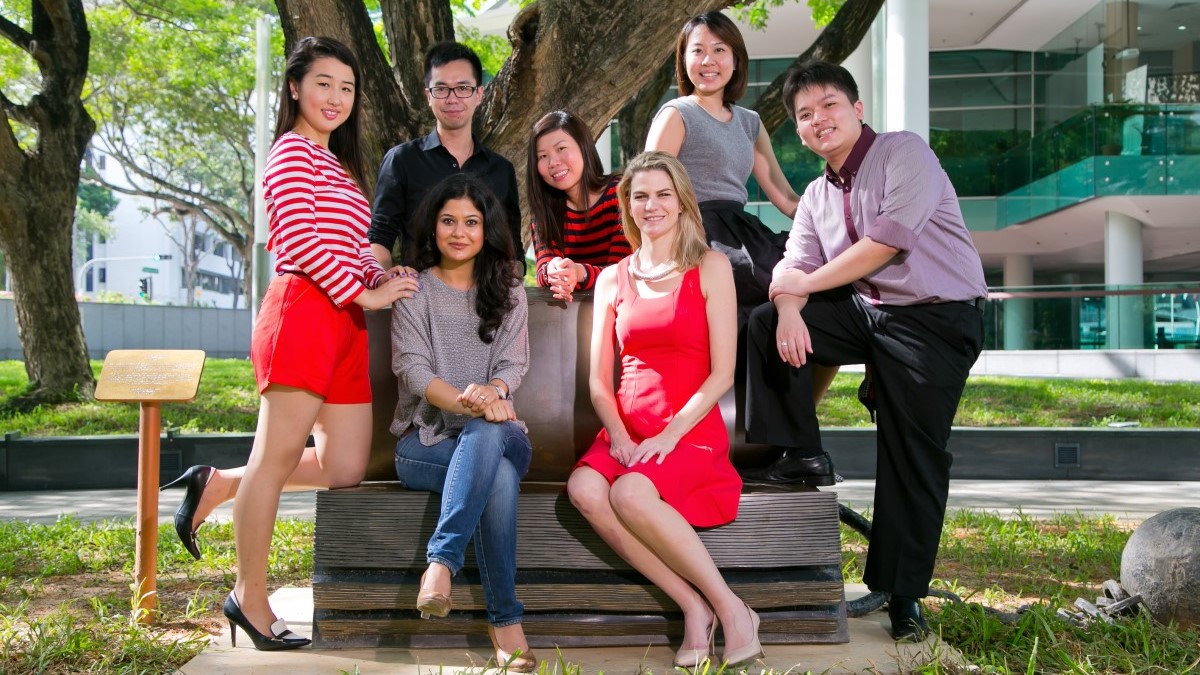
In today's globalised and interconnected world, it is more important than ever for postgraduate students to conduct well-rounded research, relevant to the challenges of the 21st century.
Around the world, individuals, governments and organisations are facing unprecedented challenges. To succeed in this new era, world-class thought leaders who can undertake cutting-edge research across disciplines and deliver an impact on businesses, societies and public institutions have to be nurtured.
While traditional postgraduate research can be a solitary experience, it no longer has to be the case. There are multiple benefits to a holistic and community-based approach, based on interdisciplinary programmes, shared courses, events, networking and cohort-building. Such a postgraduate research experience can provide a more well-rounded education and the opportunity to form valuable relationships with fellow students and academics. In addition, pursuing a community-based postgraduate research programme may be pivotal to developing essential skills such as teamwork, communication and leadership.
SMU has established the College of Graduate Research Studies (CGRS) to meet these needs, which advances interdisciplinary education through interdisciplinary courses focused on advanced methods and interdisciplinary research. The College also offers a professional development programme focused on skill-based training and opportunities for 'co-learning' experiences and academic exchanges across SMU Schools.
“The College of Graduate Research Studies is another step towards providing a superlative student experience at SMU, this time for graduate research students,” said Sir Nigel Thrift, Chairman, Academic Affairs Committee.
“Not only will it establish interdisciplinary programmes and the opportunity to access more interdisciplinary topics and workshops, but it will, as a result, allow graduate researchers to gain access to broader research horizons and to discuss these new horizons with many more of their peers.”
Innovative solutions for unprecedented challenges
Today’s most challenging issues require novel solutions that can only be achieved through interdisciplinary collaboration.
CGRS offers a holistic learning experience that allows students to develop the knowledge and competencies needed to create these solutions. Its postgraduate research programmes encourage the integration of disciplines, culture and industry, providing students with the opportunity to develop a truly interdisciplinary perspective. This allows them to view problems from multiple angles and identify potential solutions other disciplines may have overlooked. As a result, graduates are well-equipped to develop the innovative solutions required by unprecedented, modern problems.
“The establishment of CGRS is in line with the national strategy of building a robust base of research capabilities and peaks of international excellence, as well as nurturing a strong research and innovation talent pipeline,” said Mr Ho Kwon Ping, former Chairman, SMU.
“Our community of learners will benefit from the diversity of expertise, disciplinary and interdisciplinary knowledge and perspectives that will be shared within the College.
This enhances the learning experience of postgraduate research students as they become better equipped to understand complex issues and challenges affecting the world across boundaries and create significant, long-term impact.”
As thought leaders in their field, faculty members who take an interdisciplinary approach to teaching and research are sought after by academic institutions and industry organisations. The interdisciplinary approach enables faculty to address societal challenges from multiple perspectives and to collaborate with colleagues in other Schools, academics in other universities, and industry professionals to generate new knowledge.
Pioneering a new realm of legal and urban research
Professor Wang Heli, Dean of CGRS, said “The launch of the PhD in Law, Commerce and Technology, as well as Master of Philosophy and PhD in Asian Urbanisms, will be our first steps in 2022 and 2023 respectively, to strengthen SMU’s interdisciplinarity in research. The programmes are both academic- and industry-oriented, and our postgraduate research students in these programmes will be expected to bear both intellectual depth and material industrial relevance in their dissertations.”
The PhD in Law, Commerce and Technology took in their first intake of students in August 2022.
The first of its kind in Asia-Pacific and among a handful of interdisciplinary research doctoral programmes offered by law schools around the world, the programme is built on YPHSL’s research strengths, particularly in the areas of commercial law, and law and technology. The programme adopts an industry-focused and policy-oriented approach to produce cutting-edge research that can help regulators, companies and society as a whole face the challenges of today’s changing world.
It aims to train future thought leaders in academia, judiciary, regulatory agencies and international organisations and prepare students for a career at leading research-oriented institutions.
“We are committed to training scholars who can, in the future, lead research in law,” said Associate Professor of Law Zhang Wei, Programme Director of the PhD in Law, Commerce and Technology.
“By integrating the knowledge and perspectives from law, commerce and technology, this PhD programme equips students with a deep and broad foundation that can support high academic achievements in their scholarly life.”
In the next academic year, SMU will also unveil its new Master of Philosophy in Asian Urbanisms and Doctor of Philosophy in Asian Urbanisms programmes, offered by the recently established, College of Integrative Studies. The programmes aim to provide postgraduate-level degrees in urban studies, focusing on Asia, and integrate courses and supervision from various SMU Schools, including the School of Social Sciences, School of Law, School of Accountancy and Lee Kong Chian School of Business.
Through these new offerings, students develop the ability to critically analyse problems and identify potential solutions that can be translated into practical business scenarios. These programmes also allow students to engage with industry partners and learn from their experiences. In this way, the programmes prepare students for careers in various sectors, such as planning, policy-making, consulting and research.
“I believe that the launch of the College of Graduate Studies will encourage more interdisciplinary research using different research methodologies that we currently have, but yet to conceive in our disciplines,” said Sheila Wee, SMU PhD in Psychology student.
“I think the College will also provide a good opportunity to bring together all graduates from different disciplines to foster a stronger sense of community and support that— as we all know— is critical to our experience as a postgraduate research student here in SMU.


